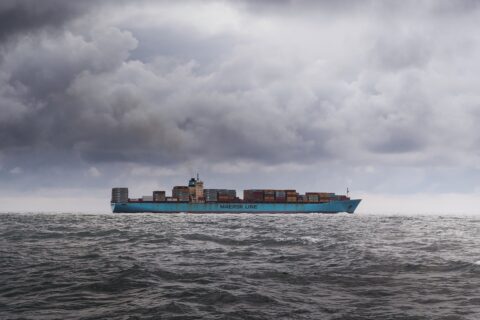Not every country has all the goods and services they require and want, that is when they engage in International trade, essentially. International trade, which includes import and export of goods from one country to the other, plays a vital role in providing goods and services to people, which are not available or are scarce locally, by sourcing them from other countries.
International Trade is complex and requires thorough understanding of laws, requirements, procedures, etc. of export country as well as import country. In this article, we will highlight some of the most important points you should know and consider before you plan on importing goods in a particular country.
Top Things to Keep In Mind For A Smooth Importing Process
Choose the Right Clearance Agent – Customs clearance is a compulsory process in International Trade. Before your goods are accepted for import in a country, they are required to be accepted by the customs authority of the import country, this acceptance is known as import clearance. To ensure your goods do not face any delay in the import clearance procedure, it is important that your clearing agent possess the knowledge of import clearance.
While you can always appoint a customs clearance agent in your company, you can also appoint a freight forwarder who would have experience and expertise in the process and would facilitate all the documentation and answer any problems around it. Import clearance requires many documents to be shown and validated by the customs authority. Documents like –
- Invoice
- Packing List
- AWB or Bill of Lading
- Certificate of Origin
- Incoterms agreed upon or the Letter of Credit
- Any permits or licenses, if required – depending on the commodity
Understand the country’s policy, procedure to Import – Every country has their own compliance, procedure, requirements for permit, licenses, etc. in place for importing goods in their country. It is of absolute importance for you to completely understand the respective country’s requirement and act accordingly.
Have the Correct Licenses to Import Goods – Goods and services are categorized under several heads by the importing country. As we mentioned earlier, you need to check what kind of licenses or permits maybe required for your goods to clear the import procedures, apply for the required approvals and have it ready to show to the customs authority of the importing country.
Know and adhere to Packaging Requirements – The packaging of your goods has to be done considering several factors like commodity, storage requirements, mode of transport, weather conditions, type of shipment (LCL, FCL, etc.), number of changes in hand, country of import, etc.
We recommended you stack your goods on a pallet for decreasing the risk of falling off and damage to your cargo. As for choosing the packing materials, it is important to know about the restrictions that the import company may have.
Correct packaging will keep your goods from damage, loss and theft.
Keep Informed of the Shipping Mode and the Shipping Route – It is important to know the options that you have available for sending your cargo to the destination country – this would help you in understanding the available route options as well as your packaging requirements. Many a times, your cargo will not be directly shipped to the destination country, it may have to be transshipped from another country, in which case understanding the requirements of the transit port becomes important in order to ensure there is no delay.
Know About Demurrage – Once your shipment reaches the destination port, it is unloaded from the carrier and kept in the port / airport terminal for a stipulated time based on the port / airport’s demurrage policy. Within this time, your goods need to be cleared for import and moved out from the terminal. The delay in doing so, whatever be the reason, results dumurrage charges.
Demurrage charges vary for destinations, ports and airports and often add to your cost big time. Therefore, understanding the Demurrage policy of the destination port or airport is of utmost importance – this will help you streamline your customs clearance process as well as the next steps of cargo movement and avoid extra cost.
Be aware of the Goods Prohibited for Import – Well, we have already mentioned that countries have their own policies, likewise, countries also have their own list of goods that are prohibited to enter their borders. It is the shipper’s responsibility to ensure their goods are allowed to be imported in the destination country, failure of which could lead to the loss of goods (seized by the customs authorities) penalties and loads of hassles.
Best Way To Importing Shipments In a Hassle Free Way
We now know how important it is to be thorough with the importing procedures, ignorance of which could lead to huge losses. These are some of the most essential points to keep in mind, there will be additional points to be kept in mind which would vary from country to country.
Due to the complexity of the process, it is common for many companies to appoint a Freight Forwarder company, who usually have a dedicated Customs Clearance team with experience and expertise in import procedures of various countries – a freight forwarder like ProConnect Integrated Logistics. We specialize in customs clearance with the objective of making it hassle-free for you, so that you don’t lose time, resources and money. on petty issues. Evaluate Us today!
ProConnect Integrated Logistics also specializes in helping you with import and logistics for bringing face masks, gloves and protection kit to UAE and Saudi Arabia. We facilitate fast shipments and guaranteed space confirmation. Talk to us today!





 APP DOWNLOAD
APP DOWNLOAD